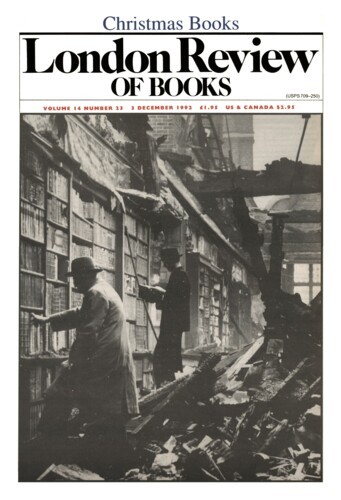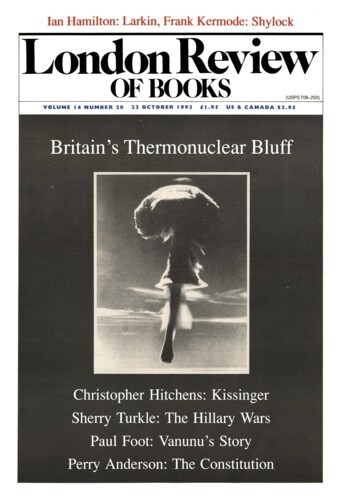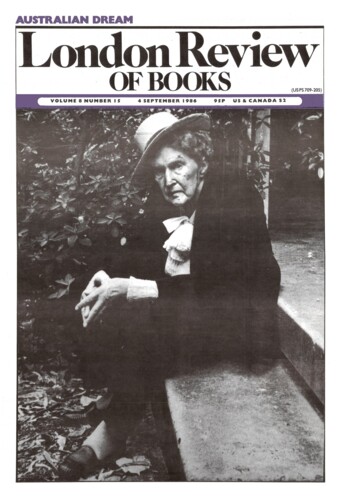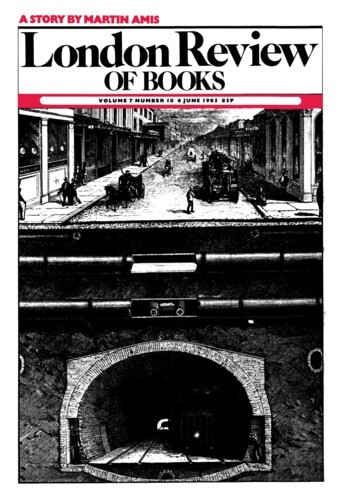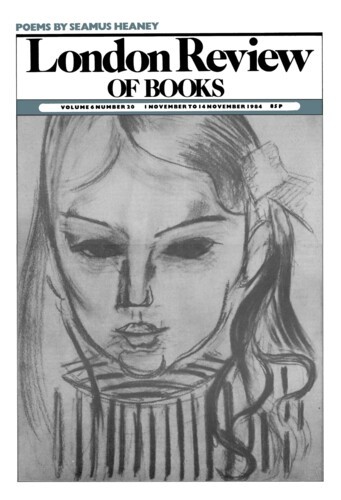‘No, no,’ replied the fat man
Michael Davie, 3 December 1992
The first thing that must strike anyone opening this well-produced book – and they may do so with apprehension, since company histories are notoriously bland – is the wonderful harvest of illustrations, ranging from No 1, a photograph of the founder and his son, the strangely whiskered Julius Reuter and Herbert, circa 1870, to No 63, a Reuters news picture of the destruction of the Berlin Wall in 1989. No 17 shows an outpost of the Reuters empire in 1900: Kalgoorlie, Australia, with men in suits and one in a straw hat lounging outside the Miners Institute, which also serves as the office, as a notice says, of the Reuters Telegram Company Limited. No 27 shows the substantial Delhi office circa 1920 (India was a prime source of Reuters’ profits), with a camel and driver passing by. Thus the imperial nature of Reuters is at once established in the mind of the reader.
